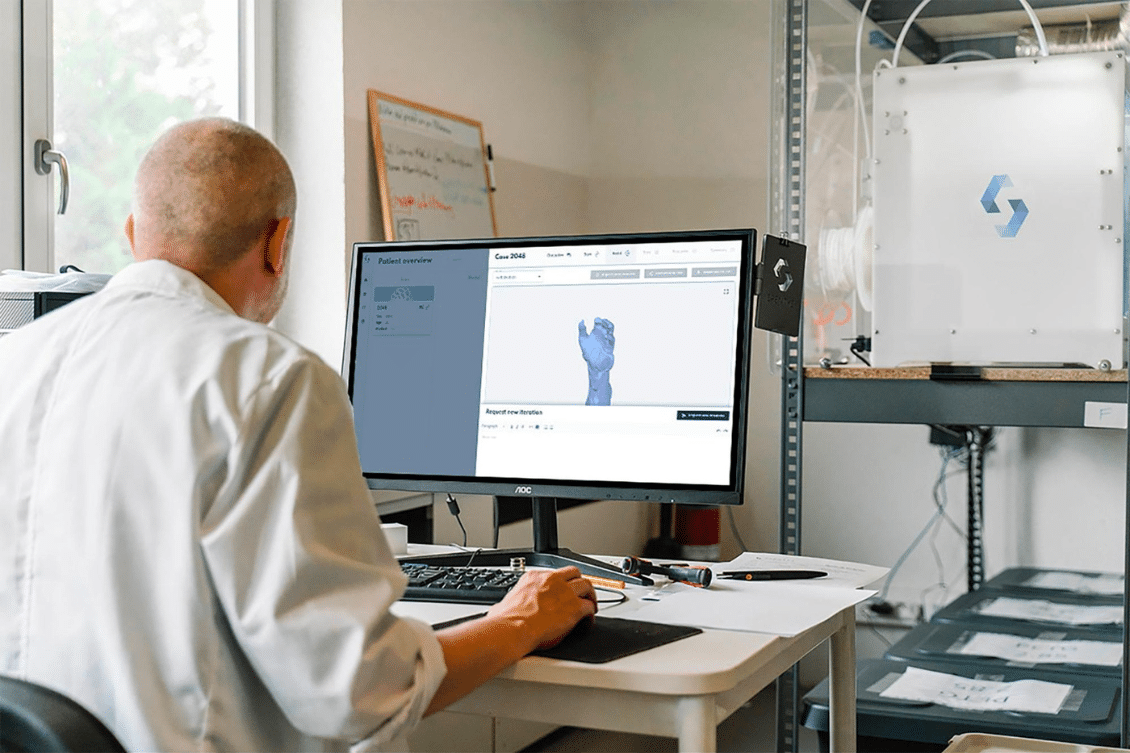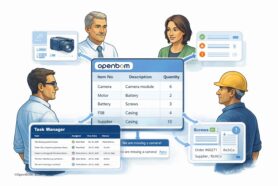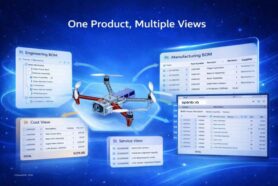
In today’s fast-paced and globally connected manufacturing landscape, effective collaboration with your supplier is crucial for success. A key aspect of this collaboration is to make sure your supplier is working on the most up-to-date product data.
OpenBOM offers a robust set of features and functionalities designed to streamline the creation of derivative files and facilitate seamless communication with your supplier. By leveraging OpenBOM’s capabilities, companies can optimize their supply chain operations, reduce errors, and foster productive partnerships with their suppliers.
In this blog post, we are going to look at the 3 ways OpenBOM enables collaboration with your supplier by creating derivative files.
The Importance of Derivative Files
Not properly sharing data with your suppliers will always create risks in your supply chain. If you do not properly share data with your supplier then you can expect the following:
- Purchasing incorrect parts
- Making changes to the wrong part or component
- Working on the wrong revision
- Not understanding costs
To solve some of these problems, OpenBOM provides a key feature to save time and to make sure that you are always connected to your supply chain. One key feature is the automatic generation of derivative files.
First, what are derivative files?
Although every company is using CAD systems with native geometry files for design, these files are very rarely shared downstream with contractors and suppliers. There are many reasons for the creation of agnostic files, such as derivative files.
Among the main reasons are preserved IP leak, lack of CAD files licenses with contractors and suppliers, and standardization, and control. No one wants a supplier to open CAD files and make some changes. So, usually, companies are requested to share standard files such as STEP, PDF, DXF, etc. Creating these files is a real pain for engineers. It takes time and even more, requires accuracy not to forget and be sure to export and send the right files.
Here are the top 3 things you get when you create derivative files and share them with your supplier.
Automatic Generation
Creating derivative files is time-consuming. During the development stage, there are multiple changes and versions created for each item. For each change or revision, you need to create a derivative file. That derivative file then needs to be shared with your supplier.
Automatically creating derivative files will not just save your engineer time but it will help keep your supplier updated with the latest drawings.
Automatic Sharing
It’s great that you can automatically generate derivative files but OpenBOM takes the creation of derivative files a step further (pun intended).
With OpenBOM, you can also automatically share these derivative files with your supplier as well.
We have all forgotten to share important data, including CAD files, with your supplier. This feature eliminates the risk of your supplier not having the correct file.
OpenBOM automatically cuts out two important tasks manufacturing companies need to accomplish:
- Automatically generating derivative files
- Automatically sharing these derivate files.
The Correct Revision is Shared
Sharing CAD files in folders is confusing. You are often scrambling to find the most recent revision to send to your supplier and contractors. OpenBOM generates and shares derivative files but it makes sure that the correct revision is also shared with your supplier.
This again takes time to do and oftentimes, there are mistakes that occur because of a lack of a proper process.
What to do Today
If you are looking to improve the way to improve your processes with your supplier then enabling collaboration is step one.
Part of enabling collaboration is making sure you provide your supplier with the most up-to-date files. And often times, suppliers are using old CAD files and product data.
The solution is to automatically create derivative files which is a key function included in OpenBOM.
Creating automatic derivate files will eliminate the non-value-added time needed to generate and share these files. In addition, you will always know that the most updated CAD files have been shared with your supplier.
OpenBOM is a cloud-based PDM & PLM platform to manage your engineering and manufacturing data. Companies from startups to Fortune 500’s use OpenBOM to create a centralized database to bring in, store, and manage their manufacturing data. With this infrastructure, users also use OpenBOM to streamline both their change management and PO processes.
If you need to improve the way you manage your data and processes, share data instantly, or collaborate with contractors and suppliers, contact us today for a free consultation.
Regards,
Jared Haw
Join our newsletter to receive a weekly portion of news, articles, and tips about OpenBOM and our community.










